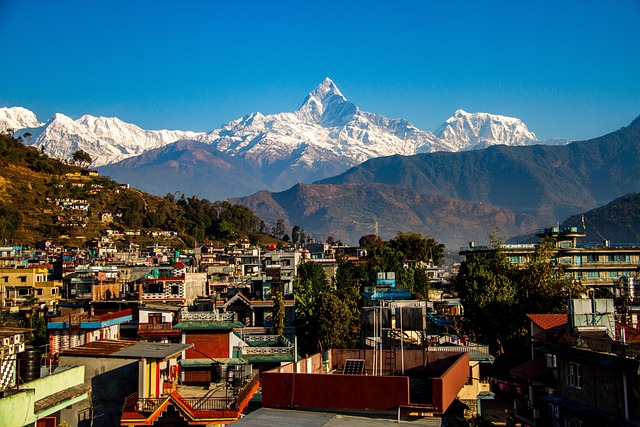2. A Country Built on Conservation Values
Nepal has one of the most progressive constitutions in the world when it comes to environmental rights. It enshrines:
The right to live in a clean and healthy environment
Sustainable use of natural resources
Public participation in environmental governance
Social inclusion on caste, ethnicity and gender lines
From wildlife conservation to community-managed forests, Nepal has often done more with less. But these efforts can disadvantage local communities and are now being undermined by global emissions and contradictory policy implementation..
Reference: “Constitutional roots of Nepal’s climate diplomacy” – Nepali Times, 2024
3. Courts Are Fighting. But Where Are We?
Nepal’s Supreme Court has been a rare champion of environmental integrity—from halting the Nijgadh airport to defending public land during the Guthi protests.
But today, civil society is falling silent or have their voices ignored by the government
While courts still speak up, the public voice has dimmed, making our wins more fragile than ever.
Without consistent citizen pressure on policy leaders and corporations, even legal victories may be overturned. Environmental justice isn't just a legal issue—it's about collective power.
Reference: “Justice for Environment” – Nepali Times editorial, 2024
4. Nepal’s Youth Aren’t Waiting. They’re Mobilizing.
Young Nepalis from every corner of the country are preparing to represent Nepal at COP29, bringing community-based evidence and a united message to the global stage.
They are:
Gathering local data
Centering marginalized voices
Advocating for Nepal-specific climate finance
This movement shows that climate justice is not abstract. It’s what happens when knowledge meets action.
Reference: “Nepal’s youth prepare to take climate fight to COP29” – Nepali Times, March 2025
5. Nepal at the ICJ: A Landmark Plea for Climate Justice
Nepal is Not Just Facing Climate Change. It's Facing Climate Injustice.
Nepal contributes less than 0.027% of global emissions, yet it’s people' stands onat the frontline of the world’s climate crisis. Melting glaciers, flash floods, droughts, and disappearing biodiversity aren’t distant threats, they are lived realities today for millions of Nepalis.
But this isn’t just about carbon and climate. This is about justice.
In a historic first, Nepal addressed the International Court of Justice (ICJ), demanding legal accountability from high-emitting countries. It wasn't a political appeal—it was a call for climate reparations grounded in human rights.
“The countries least responsible are suffering the most. This is a question of fairness, not charity.”
Nepal’s ICJ statement frames climate change not just as an environmental issue—but a violation of justice against vulnerable nations.
Reference: “Nepal calls for justice at the ICJ over climate damage” – Nepali Times, Dec 2024
5. Environmental Justice is Global. But It Begins at Home.
When we speak of “climate injustice,” we’re not only talking about what the world owes Nepal. We’re also asking:
What do we owe each other?
From the hills of Jumla to the streets of Kathmandu, environmental degradation isn’t equally experienced. Low-income, rural, and Indigenous communities suffer first and worst.
True environmental justice means repositioning the most impacted communities from the margins to the center Reference: “Environmental injustice at home” – Nepali Times, April 2025
What Nepal’s EJ movement is fighting for
Legal accountability from polluters and the government
Equitable climate finance and adaptation support
Strong civic and legal institutions
Youth-led loca to global advocacy
Justice within our own borders
Without Justice, There is No Sustainability
Nepal’s fight for environmental and climate change cannot be separated from its fight for justice—because without fairness, no solution will ever last.
This is not about blaming actions the past. It’s about securing the future.
Join the Movement. Speak Out. Organize. Act.
Environmental justice is not a slogan. It’s the only way forward.
